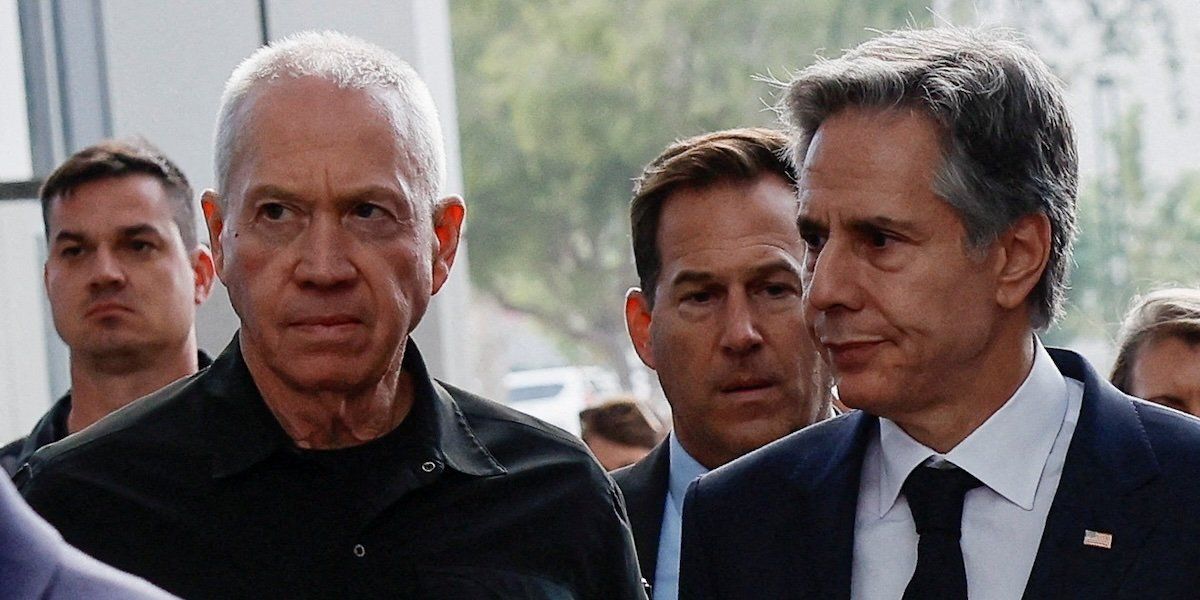US Secretary of State Antony Blinken is touring the Middle East this week in a bid to prevent a wider, regional conflict from spilling over from the Israel-Hamas war. But Blinken has his work cut out for him as Washington is increasingly struggling to exert its influence over the Israeli government.
While meeting with Israeli leaders in Tel Aviv on Tuesday, the top US diplomat “stressed the importance of avoiding further civilian harm” in Gaza and emphasized that the establishment of an eventual Palestinian state is crucial to fostering a “lasting, sustainable peace for Israel and the region.”
But while Blinken was making his case, fierce fighting raged on in Gaza, and Israeli Defense Minister Yoav Gallant told him Israel’s operations in southern Gaza would "intensify and continue until Hamas leadership is detected.”
Meanwhile, the humanitarian situation in Gaza remains dire, with the UN recently warning that a famine could be on the horizon. The death toll in the enclave has surpassed 23,000, according to the Hamas-run health ministry.
The big picture: Despite mounting international criticism – including allegations of genocide from countries like South Africa – and rising pressure from the US to take its foot off the gas, Israel has made it clear that it will not give up on its goal of destroying Hamas. The fighting is poised to continue for the foreseeable future.
Like Blinken, Germany’s top diplomat also visited the region this week and reiterated Berlin’s support for a two-state solution to the conflict. But Bibi Netanyahu’s far-right government is openly hostile to Palestinian statehood, with some officials going as far as to support the permanent displacement of Gazans.
In short, Blinken is swimming against the current with his messaging toward Israel.
And though the US is hoping to stop a regional war from developing, Israel and Hezbollah – the powerful Iran-backed militant group in Lebanon – also continued to exchange cross-border fire on Tuesday. The US has also been entangled in an escalating tit-for-tat with Iranian proxies across the Middle East, launching a drone strike that killed the leader of an Iran-backed militia in Baghdad as recently as last week.
But this doesn’t mean all hopes for diplomacy are dead in the water. Israeli officials arrived in Cairo on Monday to revive talks aimed at securing the release of more hostages trapped in Gaza. We’ll be keeping a close eye on these discussions in the coming days.
